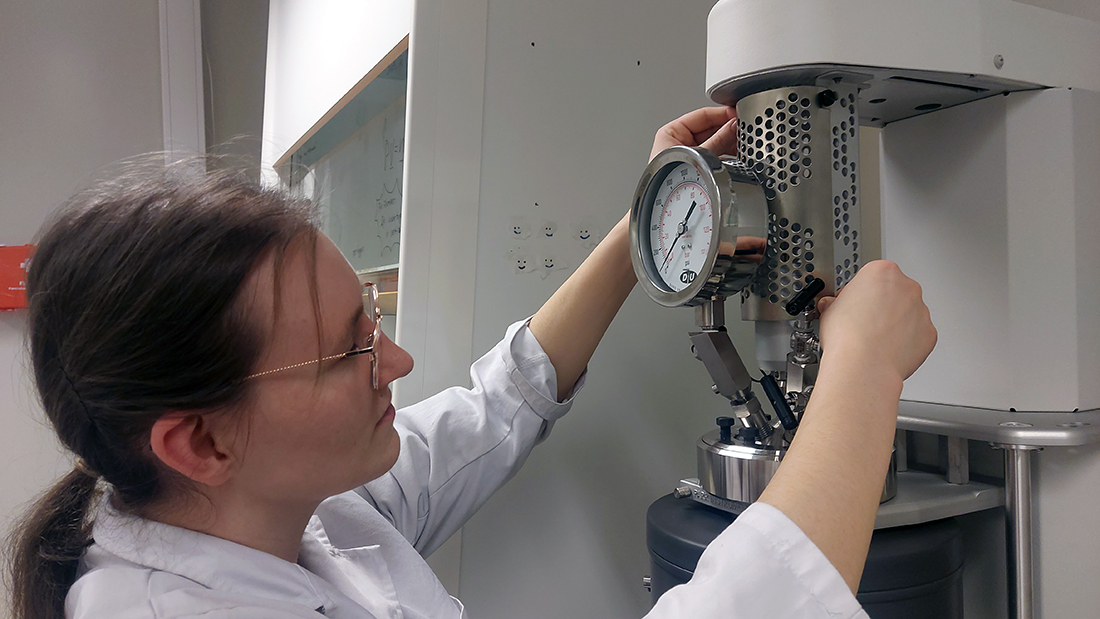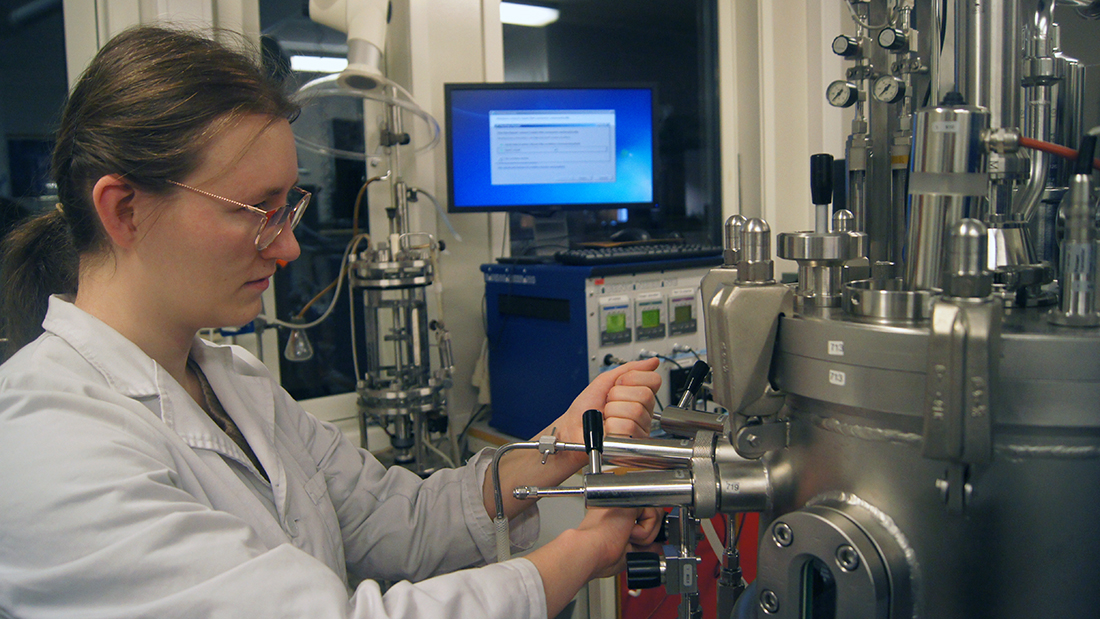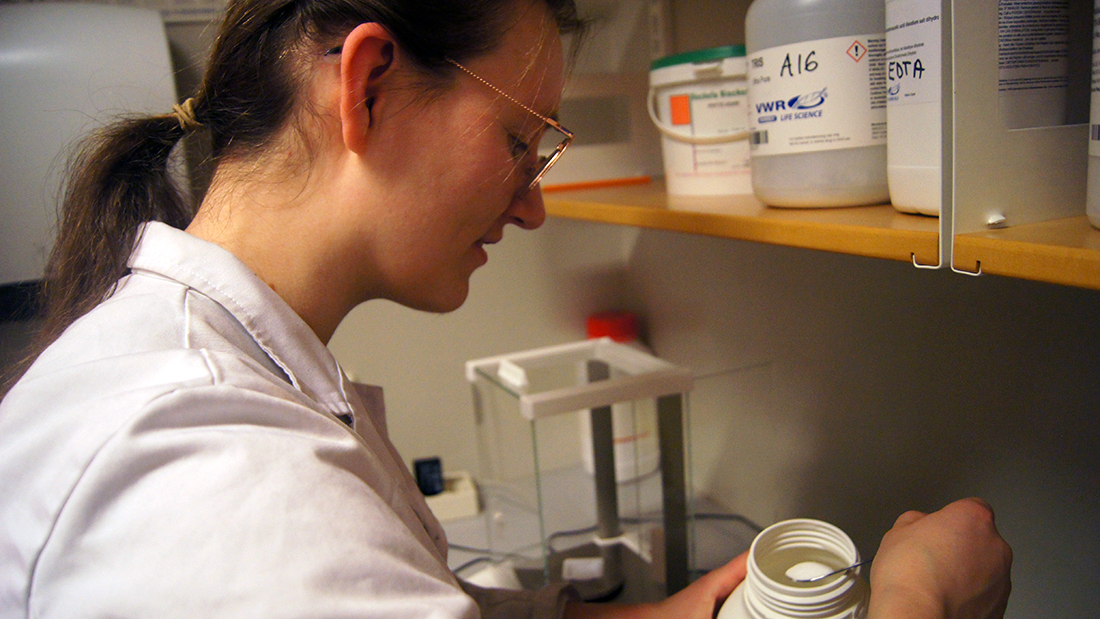Master's student Sarah J. Klausen started her master's studies in autumn 2021. She is originally from Kristiansand, and took a bachelor's degree in biology at the University of Agder. Her interest in applied biotechnology and biomedical sciences bio and practical applications related to biology led her to move to Hamar to take a master's degree.
– After completing my studies, I want to play a role in creating change and new solutions in our society. In the programme, we learn about how we can apply biology in practice. I am challenged as a person, which I think is very welcome since I get to expand my own perspective, says Klausen.

Delving into experimental biotechnology
Biotechnology is of great importance for the development of, among other things, medicine, agriculture and industry, and a master's degree in food biotechnology directs attention to the use and usefulness of living organisms such as plant cells, animal cells and microorganisms. Biotechnology as a field closely examines biomolecules from these, and how to create new products and services based on sustainability.
– As a student here, you can choose between two different specializations, experimental biotechnology and commercialization of biotechnology. I chose the experimental specialization, which involves a lot of practical work in the laboratory aimed at, among other things, cell and reproduction biotechnology, bioprocess/biorefinery, bioinformatics and molecular and functional genetics, says Klausen.

Master's project on biorefining
As a master's student in applied and commercial biotechnology, Klausen has had her work on her master's thesis integrated into a research group from day one, together with professors, associate professors, PhD students, and others. This aims to give the students a thorough introduction to what awaits them in working life after completing their degree, as well as a student life where social contact and close professional follow-up from supervisors are ensured. She herself is also a teaching assistant for first-year students on the master's programme.
– This is a very practical study, and as a second-year student I spend seven to eight hours in the laboratory every day. We have skilled teachers and I am part of a safe and inclusive environment that provides a good learning environment, says Klausen.
Her master's project is within biorefining, which is about the utilization of bioresources from forests, agriculture and the agro-industry for the isolation and characterization of substances of commercial value. In this case, Klausen has taken a closer look at waste from the mushroom industry to find possible new applications.
Are there any valuable molecules in the waste? The work consists, among other things, of testing various efficiency improvement methods.
– This project is without a doubt what I have learned the most from during my studies. Gradually, I notice that I am becoming more confident in reflecting and working towards research, which I can largely thank the study programme and the environment here at Hamar for, says Klausen.
The master's programme has an interdisciplinary approach to biotechnology, which means that Klausen and her fellow students are well qualified for work in research and development laboratories after completing their studies. She describes as points of strength both the fact that the majority of fellow students are international students and that the study programme has English as the language of instruction.
– The academic environment in the programme is internationally oriented and research is naturally an international academic environment, so we as students benefit from the course having a global perspective and the lecturers having an international outlook, says Klausen.
Completing the programme in spring 2023
She plans on completing her master's degree in the spring of 2023, and is keeping her options open for what lies ahead in working life. She has already secured a summer job in the form of a 50 percent position as a laboratory worker in a research group in Hamar. After two years in Hamar, she has settled in well both in the city and at INN University, and has set a goal for the many hours in the laboratory to result in future involvement in the institution.

– In the long term, I want to get a PhD in order to be able to work in research at a high level and participate in national and international projects that seek solutions for society using biology and biotechnology, concludes Klausen.
This article was translated from Norwegian by Noorit Larsen



